Politics
North Korea can talk to US if it stops insisting on denuclearisation, says Kim
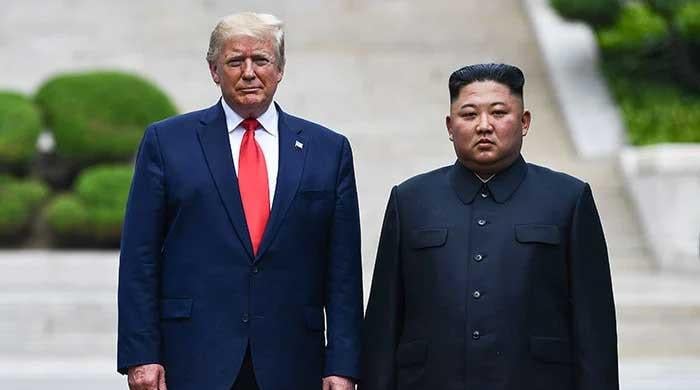
- “I still have fond memories of US President Trump,” says Kim.
- Adds North Korea will ‘never ever’ negotiate on matter.
- South Korea’s President Lee says sanctions, pressure have failed.
SEOUL: North Korean leader Kim Jong Un said there is no reason to avoid dialogue with the US if Washington stops insisting his country give up nuclear weapons but he will never trade away the nuclear arsenal to be free of sanctions, state media reported on Monday.
In a speech at the Supreme People’s Assembly on Sunday, Kim said: “Personally, I still have fond memories of US President Trump,” KCNA reported. The two leaders met three times during Trump’s first presidency.
The comments come at a time when the new liberal government in Seoul is urging Trump to take the lead in reopening dialogue with Kim, six years after all peace talks with Pyongyang collapsed over a clash on sanctions and nuclear dismantlement.
“If the United States drops the absurd obsession with denuclearising us and accepts reality, and wants genuine peaceful coexistence, there is no reason for us not to sit down with the United States,” Kim was quoted as saying.
It was a matter of survival for the country to build nuclear weapons to safeguard its security against grave threats from the United States and South Korea, Kim said, listing a series of regular military drills by the allies that he said have evolved into exercises for a nuclear war.
Recent overtures from Washington and Seoul for dialogue are disingenuous because their fundamental intent to weaken the North and destroy his regime remains unchanged, Kim said, adding a phased proposal by the South on ending the North’s nuclear programmes was proof of that.
“The world already knows full well what the United States does after it makes a country give up its nuclear weapons and disarms,” Kim said. “We will never give up our nuclear weapons.”
‘No negotiations for eternity’
“There will never be, and will never ever be for eternity, any negotiations with enemies of exchanging some things out of some obsession with lifting sanctions.”
Sanctions have been “a learning experience” and made his country stronger and more resilient, he said.
North Korea has been under a series of UN Security Council resolutions imposing economic sanctions and arms embargoes that have squeezed funding for military development but it has continued to make advances in building nuclear weapons and powerful ballistic missiles.
South Korean President Lee Jae Myung said in an interview with Reuters those sanctions have ultimately failed to deter the North, which today is adding massive nuclear weapons numbering 15 to 20 to its arsenal every year.
“The reality is that the previous approach of sanctions and pressure has not solved the problem; it has worsened it,” Lee said.
Lee has made peace overtures since taking office in June, saying dialogue with Pyongyang was necessary, and has proposed steps to build confidence and eventually end the North’s nuclear programme.
Lee told Reuters there are formidable obstacles to reopening dialogue with the North but he still believed the phased approach on dismantling Pyongyang’s nuclear programme was the realistic option.
It was necessary to create the right conditions to bring the North back to the table and Trump has a key role to play in those efforts, said Lee.
Politics
Trump says Pakistani PM’s ‘saving 10 million lives’ remark is an honour
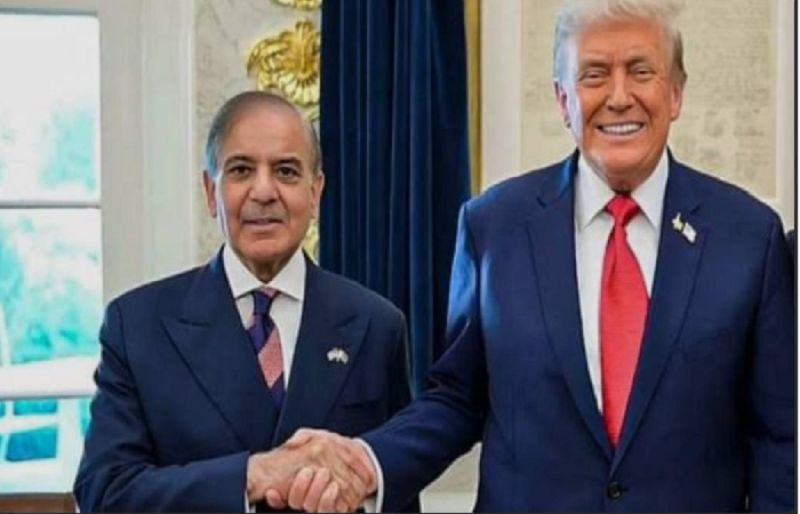
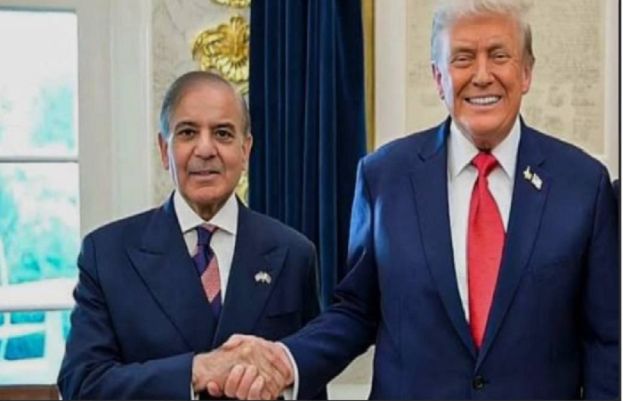
US President Donald Trump has reiterated his claim of having stopped a war between Pakistan and India, while also saying that Pakistan Prime Minister Shehbaz Sharif thanked him for saving at least 10 million lives.
He made the remarks at the renaming of Southern Boulevard to Donald J Trump Boulevard in Washington on Friday.
“In a year, we made eight peace deals and ended the conflict in Gaza. We have peace in the Middle East…We stopped India and Pakistan from fighting, two nuclear nations…The Pakistani Prime Minister said Donald Trump saved at least 10 million people, and it was amazing,” he said.
The US president further recalled that the Pakistani prime minister’s remarks were an honour for him.
Trump cited his administration’s foreign policy record and repeated assertions of brokering peace between the two nuclear-armed neighbours.
Trump has made similar claims multiple times since May 10 last year, arguing that US pressure helped defuse tensions between India and Pakistan.
Politics
Saudi King Salman leaves hospital after medical tests
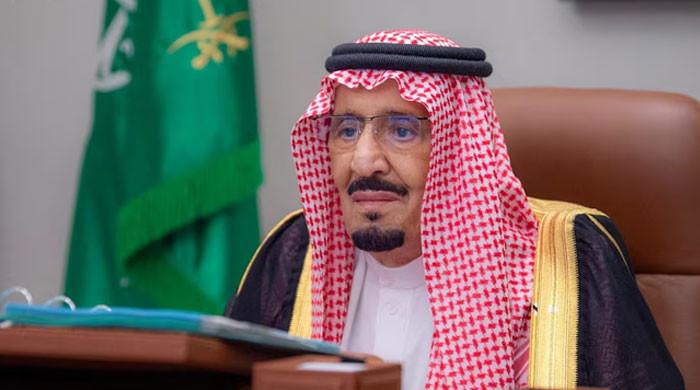
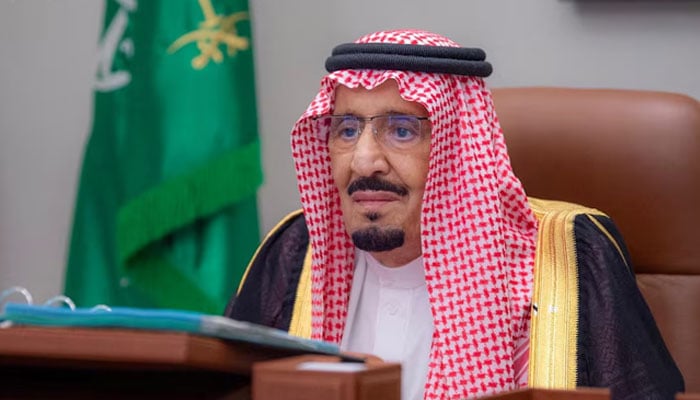
Saudi Arabia’s 90-year-old King Salman was discharged from hospital after undergoing medical tests in the capital Riyadh, the kingdom’s Royal Court said on Friday, adding that the results were “reassuring”.
The monarch “left the King Faisal Specialist Hospital in Riyadh today (Friday) after undergoing medical tests that proved reassuring”, the royal court said in a statement shared on state media, having announced his admission earlier in the day.
Saudi Arabia, the world’s biggest crude oil exporter, has for years sought to quell speculation over King Salman’s health.
He has been on the throne since 2015, though his son Mohammed bin Salman was named crown prince in 2017 and acts as de facto ruler.
The monarch’s well-being is rarely discussed, but he has been admitted for surgery and tests on multiple occasions in recent years.
In 2024, the Royal Court said he suffered from lung infections, which he recovered from.
He was hospitalised in May 2022, when he went in for a colonoscopy and stayed for just over a week for other tests and “some time to rest”, the official Saudi Press Agency reported at the time.
He was also admitted to hospital in March 2022 to undergo what state media described as “successful medical tests” and to change the battery of his pacemaker.
In 2020, he underwent surgery to remove his gall bladder.
Politics
Trump welcomes Iran move on mass executions as turmoil eases
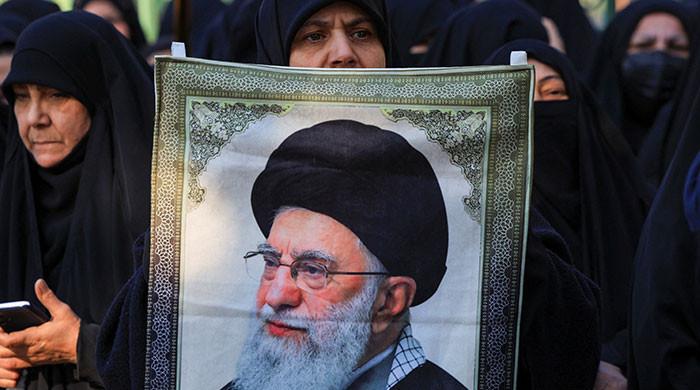
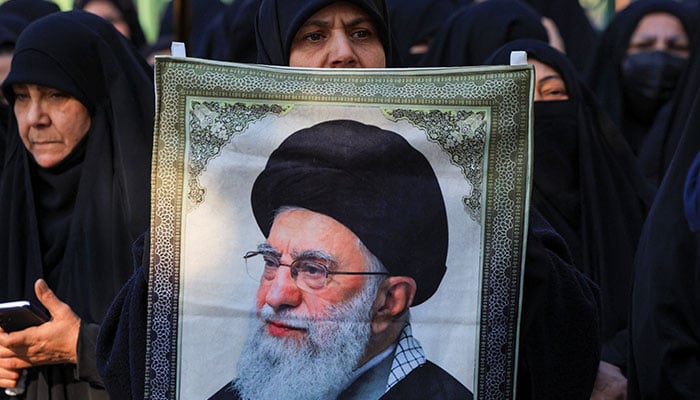
- Trump says Iran cancelled mass hangings of protesters.
- Thanks Tehran, calls move ‘greatly respected’.
- Claims more than 800 executions were scheduled.
DUBAI: US President Donald Trump has thanked Iran’s leaders for cancelling what he said were hundreds of planned executions of protesters after a crackdown.
Taking to his social media platform, he said the mass hangings had been called off and praised Tehran for the move, as deadly unrest across the country appears to be easing after a harsh crackdown.
US President Donald Trump, whose repeated threats to act had included a vow to “take very strong action” if Iran executed protesters, said Tehran’s leaders had called off mass hangings.
“I greatly respect the fact that all scheduled hangings, which were to take place yesterday (Over 800 of them), have been cancelled by the leadership of Iran. Thank you!” he posted on social media.
Iran has not publicly announced plans for such executions or said it had cancelled them.
The protests erupted on December 28 over economic hardship and swelled into widespread demonstrations calling for the end of present rule, culminating in mass violence at the end of last week. According to opposition groups and an Iranian official, more than 2,000 people were killed in the worst domestic unrest since Iran’s 1979 Islamic Revolution.
But several residents of Tehran reached by Reuters said the capital had now been comparatively quiet for four days. Drones were flying over the city, but there had been no sign of major protests on Thursday or Friday. Another resident in a northern city on the Caspian Sea said the streets there also appeared calm. The residents declined to be identified for their safety.
Prospect of US attack retreats
The prospect of a US attack has retreated since Wednesday, when Trump said he had been told killings in Iran were easing. But more US military assets were expected to arrive in the region, showing the continued tensions.
US allies, including Saudi Arabia and Qatar, conducted intense diplomacy with Washington this week to prevent a US strike, warning of repercussions for the wider region that would ultimately impact the United States, a Gulf official said.
Israel’s intelligence chief David Barnea was also in the US on Friday for talks on Iran, according to a source familiar with the matter, and an Israeli military official said the country’s forces were on “peak readiness”.
As an internet blackout eased this week, more accounts of the violence have trickled out.
One woman in Tehran told Reuters by phone that her daughter was killed a week ago after joining a demonstration near their home.
“She was 15 years old. She was not a terrorist, not a rioter. Basij forces followed her as she was trying to return home,” she said, referring to a branch of the security forces often used to quell unrest.
The US is expected to send additional offensive and defensive capabilities to the region, but the exact make-up of those forces and the timing of their arrival was still unclear, a US official said, speaking on condition of anonymity.
The US military’s Central Command declined to comment, saying it does not discuss ship movements.
Pahlavi calls for increased pressure
Reza Pahlavi, the US-based son of Iran’s last shah who has gained increasing prominence as an opposition figure, on Friday urged the international community to ramp up pressure on Tehran to help protesters overthrow the present setup.
“The Iranian people are taking decisive action on the ground. It is now time for the international community to join them fully,” said Pahlavi, whose level of support inside Iran is hard to gauge.
Trump this week appeared to downplay the idea of US backing for Pahlavi, voicing uncertainty that the exiled royal heir who has courted support among Western countries could muster significant backing inside Iran. Pahlavi met US envoy Steve Witkoff last weekend, Axios reported.
Iranian-Kurdish rights group Hengaw said that there had been no protest gatherings since Sunday, but “the security environment remains highly restrictive”.
“Our independent sources confirm a heavy military and security presence in cities and towns where protests previously took place, as well as in several locations that did not experience major demonstrations,” Norway-based Hengaw said in comments to Reuters.
Reports of sporadic unrest
There were, however, still indications of unrest in some areas. Hengaw reported that a female nurse was killed by direct gunfire from government forces during protests in Karaj, west of Tehran. Reuters was not able to independently verify the report.
The state-affiliated Tasnim news outlet reported that rioters had set fire to a local education office in Falavarjan County, in central Isfahan Province, on Thursday.
An elderly resident of a town in Iran’s north-western region, where many Kurdish Iranians live and which has been the focus for many of the biggest flare-ups, said sporadic protests had continued, though not as intensely.
Describing violence earlier in the protests, she said: “I have not seen scenes like that before.”
Video circulating online, which Reuters was able to verify as having been recorded in a forensic medical centre in Tehran, showed dozens of bodies lying on floors and stretchers, most in bags but some uncovered. Reuters could not verify the date of the video.
The state-owned Press TV cited Iran’s police chief as saying calm had been restored across the country.
A death toll reported by US-based rights group HRANA has increased little since Wednesday, now at 2,677 people, including 2,478 protesters and 163 people identified as affiliated with the government.
Reuters has not been able to independently verify the HRANA death toll. An Iranian official told the news agency earlier this week that about 2,000 people had been killed.
The casualty numbers dwarf the death toll from previous bouts of unrest that have been suppressed by the state, including in 2009 and 2022.
-

 Tech4 days ago
Tech4 days agoNew Proposed Legislation Would Let Self-Driving Cars Operate in New York State
-

 Sports6 days ago
Sports6 days agoClock is ticking for Frank at Spurs, with dwindling evidence he deserves extra time
-
Sports1 week ago
Commanders go young, promote David Blough to be offensive coordinator
-

 Fashion6 days ago
Fashion6 days agoSouth India cotton yarn gains but market unease over US tariff fears
-

 Entertainment4 days ago
Entertainment4 days agoX (formerly Twitter) recovers after brief global outage affects thousands
-

 Fashion6 days ago
Fashion6 days agoChina’s central bank conducts $157-bn outright reverse repo operation
-

 Business1 week ago
Business1 week agoSoftBank reduces Ola Electric stake to 13.5% from 15.6% – The Times of India
-

 Sports6 days ago
Sports6 days agoUS figure skating power couple makes history with record breaking seventh national championship






